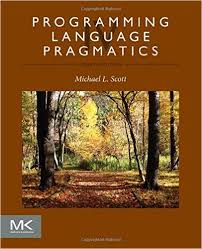Programming Language Pragmatics: A Comprehensive White Paper
Introduction
Programming language pragmatics is a relatively new field of study that focuses on the practical aspects of programming language design, use, and evolution. It explores how language features and design choices impact programmer productivity, code quality, and software reliability. This white paper delves into the key concepts and challenges in programming language pragmatics, providing a comprehensive overview of the field.
Core Concepts in Programming Language Pragmatics
- Language Design and Evolution:
- Feature Creep: The tendency to add new features to a language, which can lead to complexity and confusion.
- Language Design Principles: Guiding principles for creating effective programming languages, such as simplicity, consistency, and expressiveness.
- Language Evolution: The process of adapting a language to new paradigms and technologies.
- Programming Paradigms:
- Imperative Programming: Focuses on explicit statements that change the state of the program.
- Declarative Programming: Focuses on describing the desired outcome, rather than the steps to achieve it.
- Object-Oriented Programming (OOP): Organizes code into objects with properties and methods.
- Functional Programming: Treats computation as the evaluation of mathematical functions.
- Logic Programming: Uses logical reasoning to solve problems.
- Type Systems:
- Static Typing: Types are checked at compile time.
- Dynamic Typing: Types are checked at runtime.
- Strong Typing: Enforces type safety, preventing type errors.
- Weak Typing: Allows implicit type conversions.
- Syntax and Semantics:
- Syntax: The structure of a language, including grammar and vocabulary.
- Semantics: The meaning of language constructs.
- Programmer Productivity and Code Quality:
- Readability: The ease with which code can be understood.
- Maintainability: The ease with which code can be modified and updated.
- Performance: The efficiency of code execution.
- Reliability: The correctness and robustness of code.
Challenges in Programming Language Pragmatics
- Balancing Power and Simplicity: Creating languages that are both expressive and easy to learn.
- Adapting to New Paradigms: Evolving languages to support new programming styles and technologies.
- Managing Language Complexity: Preventing feature creep and maintaining code clarity.
- Ensuring Language Interoperability: Enabling seamless communication between different languages.
- Improving Programmer Productivity: Designing languages that facilitate efficient development.
Future Directions in Programming Language Pragmatics
- Domain-Specific Languages (DSLs): Tailoring languages to specific problem domains.
- Metaprogramming: Writing programs that write programs.
- Type Systems and Static Analysis: Improving type systems to detect errors early.
- Language Workbenches: Tools for designing and implementing new languages.
- Human-Computer Interaction: Exploring how language design can influence user experience.
References
- Programming Language Pragmatics by Michael Scott
- The Pragmatic Programmer by Andrew Hunt and David Thomas
- Language Implementation Patterns by Terence Parr
- Types and Programming Languages by Benjamin C. Pierce
- Papers from conferences such as PLDI, OOPSLA, and ICFP
- Online resources like Stack Overflow, GitHub, and language-specific forums
By understanding the principles of programming language pragmatics, developers can make informed choices about the languages they use and the way they write code. This knowledge is essential for creating high-quality, maintainable, and efficient software.
Note: This white paper provides a high-level overview of programming language pragmatics. For a deeper understanding, it is recommended to consult the referenced books and papers.



